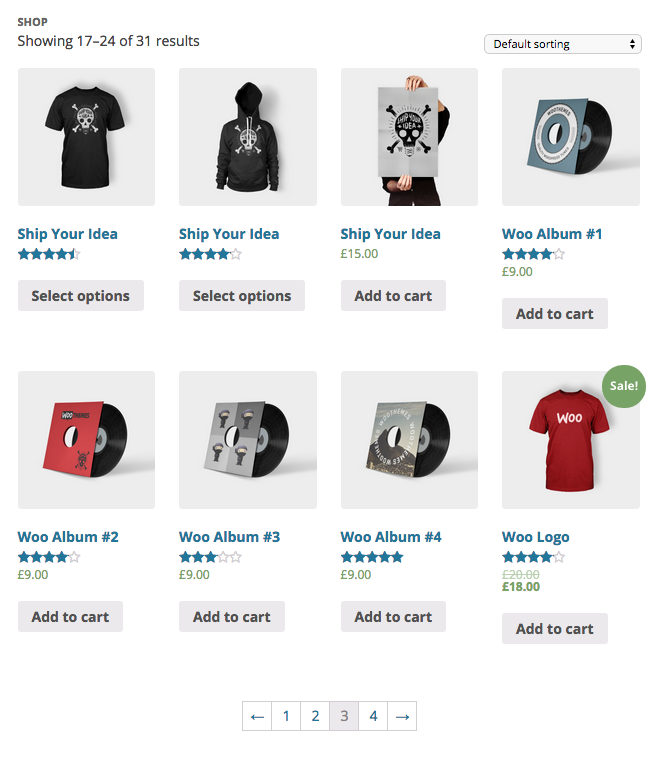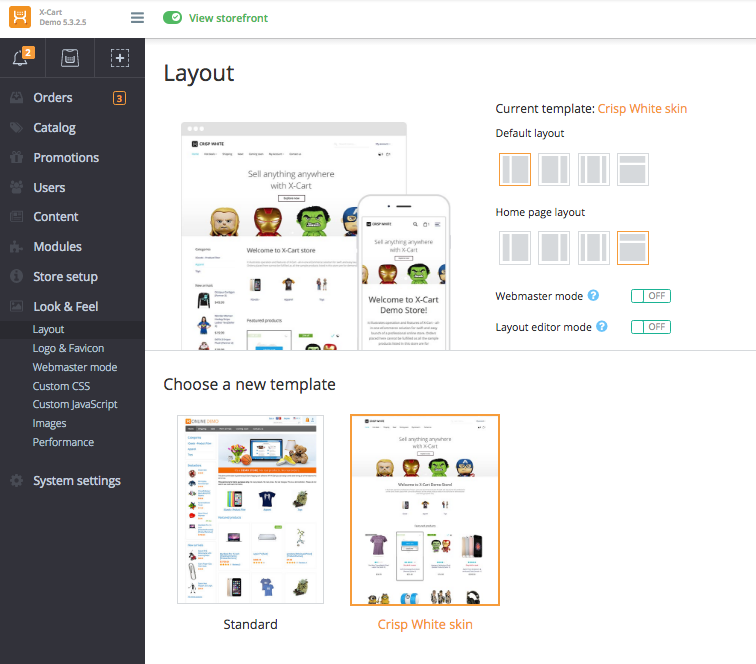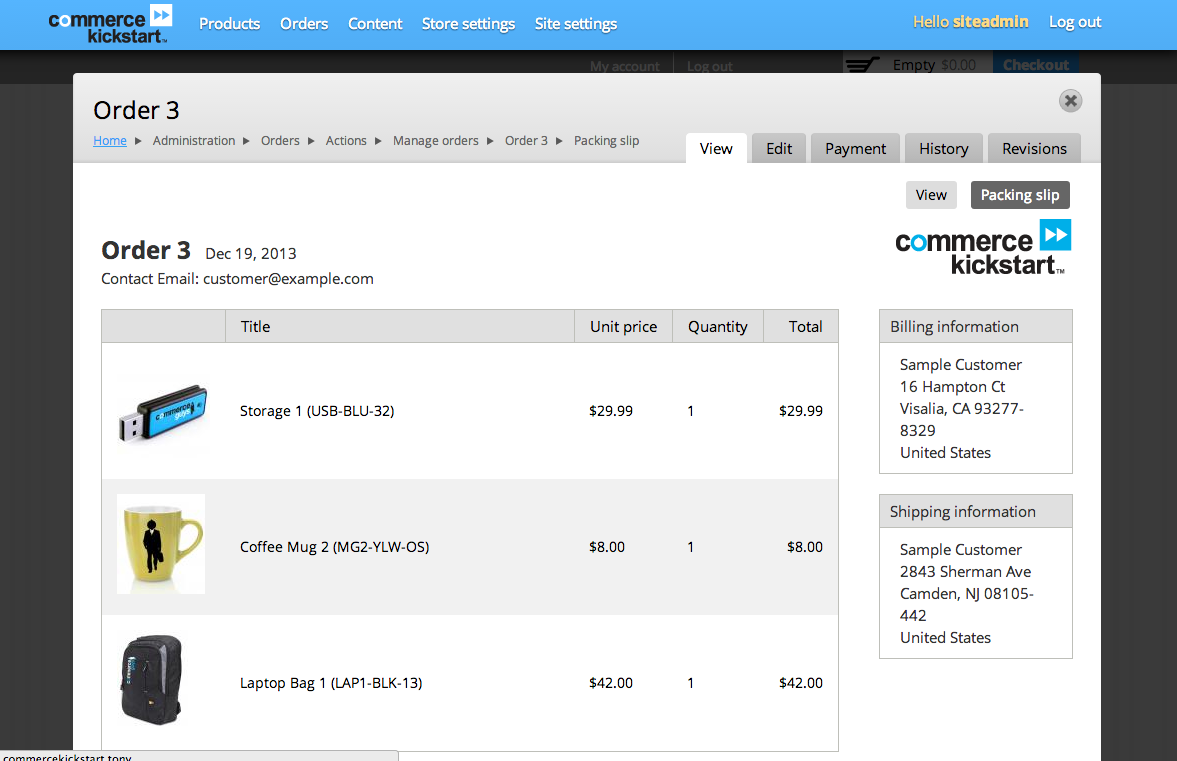November 15, 2016
 by Jasmine Lee / November 15, 2016
by Jasmine Lee / November 15, 2016

Whether you’re selling coffee beans or subscription boxes, you’ve realized the importance of maintaining a brick-and-mortar retail location and a digital storefront.
In today's digital age, businesses must present their products and services online, seamlessly offering the same kind of customer service and personalization that consumers would experience at a physical location. This is, of course, made possible through the use of e-commerce platforms.
E-commerce platforms unify, scale, and maintain core business processes like front-facing selling of products and services, back-end functions like the management of inventory, and customer order history. Depending on a business' need, security, and potential for growth, an e-commerce platform can be either open source or proprietary.
However, for businesses looking to reap the benefits of e-commerce without breaking the bank, or simply looking to test the waters with an e-commerce platform, open source may be the route to go.
In this article, we break down the top 10 open-source e-commerce platforms in 2019 based on real user reviews on G2.com.
Open-source e-commerce platforms give developers the freedom to customize features by allowing retailers to download the code and operate the e-commerce platform themselves. As a result, the business owner is responsible for building and optimizing the features of an e-commerce platform to improve the appearance of their online store and keep tabs on important things like customer interaction, engagement and purchasing history.
Additionally, you will have access to the open-source community of experts – which is, arguably, the best part about utilizing any open-source software tool – who can offer advice on setting up, managing and customizing the software.
So, without further ado, here are the top 10 open-source e-commerce tools to consider, based on user satisfaction as of June 18, 2019.
Ecwid provides a platform for business owners to set up an e-commerce shop on a variety of different platforms. Users can set up a store on a website, social media, or an existing marketplace. A free account will allow a user to set up a single online store, but additional features will require a paid account.

Image courtesy of Ecwid
“What is most helpful about using Ecwid is that it leads you through the process step by step. Also, you literally don't have to make any decisions to get your starter website up and running, it is done automatically with the option to tweak it later.”
— Ecwid review by Cary P.
"It's so simple to use and all the automatic emails and the app make it so easy. I really like how I can just add some small code to my website to have my shop. It's easy to set up and there are lots of blogs and articles on what to do and how you can improve your listing."
— Ecwid review by Markus M.
WooCommerce is an easy-to-use open-source tool, but it's widely used from small businesses to large online merchants. It is built on top of WordPress, one of the more prominent web publishing and content management tools. WooCommerce also boasts a global online community of open-source developers.
 Image courtesy of WooCommerce
Image courtesy of WooCommerce
“WooCommerce is the perfect complement of Wordpress to create a virtual store.”
— WooCommerce review by Miranda R.
"I like that it is easy to use. It is not necessary to have a huge technical knowledge to implement WooCommerce with WordPress. It is very straight-forward and several payment options (including the major ones) can be set up to use for customers through WooCommerce. At UCplus we do not have a massive webshop, but we need to be able to sell a few services and track the transactions, which makes WooCommerce perfect for us. Furthermore it is free and there are many possibilities with add-ons, etc."
— WooCommerce review by Sebasian Fatum
Big Cartel caters to artists and designers, providing the option for users to customize their store theme. Users can also use a custom domain to build their brand. Big Cartel allows businesses to sell both in-store and online.

Image courtesy of Big Cartel
“If you're just looking for a fast way to set up a professional e-store without the hassle of coding, BigCartel is a great option. It's cheaper than alternatives like Shopify, gives you various ways to set up a store with a few clicks, and offers flexible ways to offer different options of the same item (ie. clothing sizes) and gives a few different ways to charge shipping (ship by item, ship by weight, etc). They let you do sales, coupon codes, and even offer vacation mode when you're away.”
— Big Cartel review by Justin P.
"The program easily allows you to make a beautiful functional online store, customize its appearance, colors, font as you want. Completely individual appearance, directly customizing HTML and CSS. You have the ability to manage your store on the road with a mobile version. The control over orders is quite simple, you can quickly confirm the order, thereby your customers will be satisfied."
— Big Cartel review by Adriane M.
Magento Open Source (formerly Community Edition) is an open-source, cloud-based e-commerce platform written in the PHP programming language. There are a variety of rich, out-of-box features of Magento Open Source that are useful to small businesses, mid-market, and even some large scale merchants. One of these features is an immersive drag-and-drop site builder, which allows full shop customization the way the user wants.

Image courtesy of Magento Open Source
“The powerful capabilities that can withstand companies with hundreds of products and variations. Magento is open source which is great for continued work on code for the platform to get better and better.”
— Magento Open Source (formerly Community Edition) review by Sally B.
"It's a great and versatile eCommerce platform, which gives plenty of flexibility and has support for a vast amount of features and products. Being open source, you have carte blanche to change whatever you want and are only limited by your skillset and imagination."
— Magento Open Source (formerly Community Edition) review by Shaun S.
PrestaShop focuses on customization capabilities, clean and responsive designs, and simplified platform management. When it comes to back-of-office and keeping track of administrative tasks, PrestaShop thrives. PrestaShop also has integrated marketing tools to get a clear picture of customer activity on your e-commerce website.

Image courtesy of PrestaShop
“Multi-lingual, multi-currency capabilities and relatively simple setup and management. You don't need extensive technical knowledge to get this working. There is a very large selection of 3rd party modules available but at very different price levels (be prepared to get what you pay for!)”
— PrestaShop review by Warren M.
"From a final user point of view I think that the most attractive thing about Prestashop is that it can be deployed quickly and you can start customizing and uploading products, you can really wake up not having a store and go to bed with a couple of sells made."
— PrestaShop review by Maurizio A.
X-Cart is a full-scale open-source e-commerce platform built for the customer experience. Through thoughtful design, X-Cart aims to increase overall conversions and sales opportunities for your digital storefront. It is optimized for small businesses, and allows for hosting anywhere, anytime.

Image courtesy of X-Cart
“I love how they update the platform with all the essential tools and features to keep it updated and fresh. I love the technical support aspect of the software as well. Always there when you need them. I also love how they offer different pricing options for different platforms to fit any budget.”
— X-Cart review by a user.
"I have only used Xcart shopping cart software. I like that our engineering team can build onto and customize it."
— X-Cart review by a user
Drupal Commerce is a true open-source tool, with a robust online community of developers and documentation to get your e-commerce platform up-and-running. Drupal Commerce actually augments the content management system called Drupal, so a prior knowledge with that product could help merchants in the long run.

Image courtesy of Drupal Commerce
“I've done quite a bit of e-commerce site development with Drupal Commerce and my favorite thing about it is that there is literally a limitless amount of functionality that you can build into your online shops, and there are so many great add-on modules that collectively make for a VERY powerful system.”
— Drupal Commerce review by Erin C.
"I love the flexibility of Drupal commerce being built into a scalable CMS like Drupal. All of the other eCommerce solutions that I've used are strictly good at eCommerce, but all the other required website features were near impossible to achieve."
— Drupal Commerce review by Richard D.
Spree Commerce is another true open-source e-commerce framework, however, it is built with the Ruby on Rails programming language. Spree Commerce already has a wide-reaching reputation in open-source e-commerce, with clients in a variety of industries around the globe. This product gives customers an engaging native experience on desktop and mobile.

Image courtesy of Spree Commerce
“As a Ruby on Rails developer, Spree is probably the best RoR based solution available in the e-commerce space and offer a fairly easy to setup and configure approach for those familiar with Rails development cycle. It can also be extended through a number of engines and plugins but be forewarned that unless those extensions are extremely popular, you may have to fork and upgrade to work with latest Spree yourself.”
— Spree Commerce review by Michael L.
"Spree Storefront is, by far, the best platform to build your custom e-commerce solution on. Adhering to Rails patterns, Spree Storefront reduces complexity and effort by providing the foundation for product pages, shopping carts, checkout, payments, and more."
— Spree Commerce review by David Aaron F.
osCommerce is a growing community of over 300,000 store owners, developers, and service providers. The open-source e-commerce software can be used on any web server as long as it has PHP and MySQL installed. osCommerce boasts secure online shopping features as well as nearly 9,000 add-ons and extensions.

Image courtesy of osCommerce
“It can be used on any web server that has PHP and MySQL installed. osCommerce is open source. This means that you can modify it freely, without worrying that you’re violating some license agreement. Due to that, there’s also a lively community around osCommerce that’s always willing to help out with any issues you might have with the platform.”
— osCommerce review by a user
"I've created several osCommerce websites for clients. Each one has been a breeze to set up and maintain. This e-Commerce solution is one of the best I've used!"
— osCommerce review by a user
Jigoshop is a free WordPress e-commerce plugin with a variety of plugins available. Anyone can become a Jigoshop plugin developer or create their own theme. Many extensions for Jigoshop are free, and the base store comes with a variety of features for any e-commerce business.

Image courtesy of Jigoshop
Be the first to write a review for Jigoshop!
Whether you're just getting started with your digital storefront or planning and scaling for the long run, having an e-commerce platform is the first step to acquiring online customers. Choose from one of the 10 open-source platforms above, or try them for free to see which solution is right for your business.
Jasmine is a former Senior Market Research Analyst at G2. Prior to G2, she worked in the nonprofit sector and contributed to a handful of online entertainment and pop culture publications.
My journey in digital marketing began at an e-commerce agency. I worked closely with clients...
 by Bhoomika Pawar
by Bhoomika Pawar
There are plenty of reasons to become a freelancer.
 by Tricia Dempsey
by Tricia Dempsey
There’s more to making a sale in the modern landscape than most people assume.
 by Julia Nimchynska
by Julia Nimchynska
My journey in digital marketing began at an e-commerce agency. I worked closely with clients...
 by Bhoomika Pawar
by Bhoomika Pawar
There are plenty of reasons to become a freelancer.
 by Tricia Dempsey
by Tricia Dempsey


